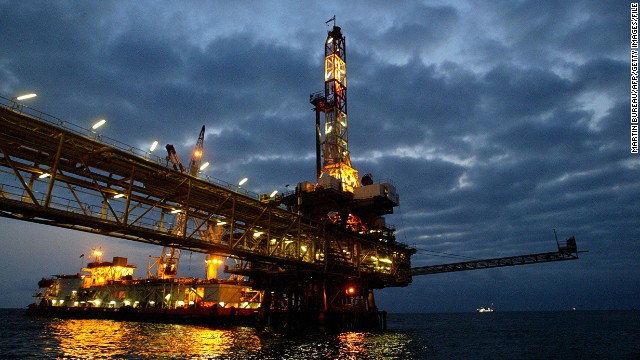
Facts:
The purpose of OPEC for members is to "coordinate and unify the petroleum policies of its Member Countries and ensure the stabilization of oil markets in order to secure an efficient, economic and regular supply of petroleum to consumers, a steady income to producers and a fair return on capital for those investing in the petroleum industry."
The purpose of OPEC for members is to "coordinate and unify the petroleum policies of its Member Countries and ensure the stabilization of oil markets in order to secure an efficient, economic and regular supply of petroleum to consumers, a steady income to producers and a fair return on capital for those investing in the petroleum industry."
OPEC members collectively supply about 43.5% of the world's crude oil production.
Together, OPEC members control about 81.9% of the world's total proven crude reserves.
OPEC member countries monitor the market and decide collectively to raise or lower oil production in order to maintain stable prices and supply.
A unanimous vote is required on raising or lowering oil production.
Each member country controls the oil production of its country, but OPEC aims to coordinate the production policies of member countries.
Oil and energy ministers from OPEC member countries usually meet twice a year to determine OPEC's output level. They also meet in extraordinary sessions whenever required.
Current Members:
Algeria - 1969-present
Angola - 2007-present
Democratic Republic of the Congo - 2018-present
Ecuador - 1973-1992; 2007-present
Equatorial Guinea - 2017-present
Gabon - 1975-1995; 2016-present
Iran - 1960-present
Iraq - 1960-present
Kuwait - 1960-present
Libya - 1962-present
Nigeria - 1971-present
Saudi Arabia - 1960-present
United Arab Emirates - 1967-present
Venezuela - 1960-present
Algeria - 1969-present
Angola - 2007-present
Democratic Republic of the Congo - 2018-present
Ecuador - 1973-1992; 2007-present
Equatorial Guinea - 2017-present
Gabon - 1975-1995; 2016-present
Iran - 1960-present
Iraq - 1960-present
Kuwait - 1960-present
Libya - 1962-present
Nigeria - 1971-present
Saudi Arabia - 1960-present
United Arab Emirates - 1967-present
Venezuela - 1960-present
Former Members:
Indonesia - 1962-2009; 2016
Qatar - 1961-2019
Indonesia - 1962-2009; 2016
Qatar - 1961-2019
Timeline:
September 14, 1960 - OPEC is formed in Baghdad, Iraq, by founding members Iraq, Kuwait, Iran, Saudi Arabia and Venezuela.
September 14, 1960 - OPEC is formed in Baghdad, Iraq, by founding members Iraq, Kuwait, Iran, Saudi Arabia and Venezuela.
November 6, 1962 - OPEC is registered with the United Nations Secretariat (UN Resolution No. 6363).
1973-1974 - Due to United States support of Israel in the Arab-Israeli conflict, the members of OPEC decide to raise the cost of oil from $3/barrel to around $12/barrel.
October 1973 - OPEC issues an embargo against the United States, halting oil exports. Customers in the United States experience long lines at gas stations and at times cannot find gas at all. Prices go from 36 cents a gallon in 1972 to over 50 cents a gallon in 1973.
March 18, 1974 - At an OPEC meeting, seven members lift the ban on exports to the United States: Algeria, Saudi Arabia, Kuwait, Qatar, Bahrain, Egypt and Abu Dhabi. Libya and Syria refuse to drop the ban, and Iraq boycotts the talks.
December 31, 1974 - Libya lifts its 14-month-old oil embargo against the United States.
November 2007 - Ecuador rejoins OPEC after a 15-year absence.
May 2008 - Indonesia announces that it will leave OPEC in 2009. The country is currently a net importer of oil, due to falling production from aging wells.
January 1, 2009 - Indonesia suspends its membership in OPEC.
January 1, 2016-November 30, 2016 - Indonesia rejoins OPEC, but suspends its membership after 11 months.
July 2016 - Gabon rejoins OPEC.
May 25, 2017 - Equatorial Guinea joins OPEC.
June 22, 2018 - OPEC announces that the Democratic Republic of the Congo has joined the organization.
December 3, 2018 - Qatar's state oil company, Qatar Petroleum, announces in a series of tweets that the country will leave OPEC on January 1, 2019. One of OPEC's oldest members, Qatar says it plans to focus on natural gas production.
Bagikan Berita Ini














0 Response to "OPEC Fast Facts"
Post a Comment